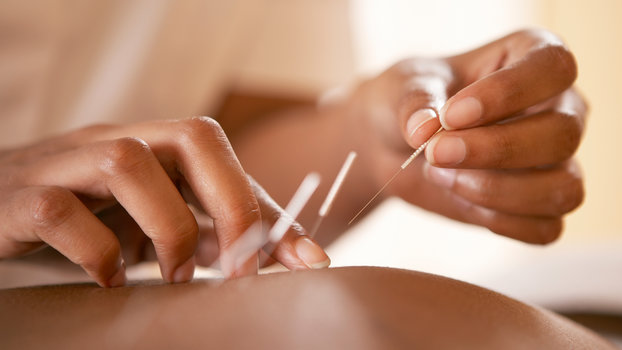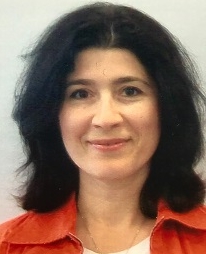- Home
-
+
Conditions/Therapies
- Back and Neck Pain
- Facet Injections
- Facet Syndrome
- Failed Back Surgery - FBSS
- Interventional Spine Treatments
- Lumbar and Cervical Epidural Steroid
- Lumbar and Cervical Herniated Discs
- Lumbar and Cervical Radiculopathy (Sciatica)
- Lumbar and Cervical Spinal Stenosis
- Lumbar and Cervical Spondylosis
- Lumbar Disc Syndrome
- Spine Injuries
- Vertebral Compression Fractures
- Numbness and Weakness of Extremities
- Arthritis
- Hand Disorders
- Orthopedic and Sports Injuries
- Achilles Tendonitis
- ACL Injuries
- Ankle Injuries, Rehabilitation
- Arm Pain
- Biceps Tendon Rehabilitation
- Bursa Injections
- Bursitis
- Chondromalacia Patella
- Fibromyalgia
- Frozen Shoulder
- Gait Imbalance
- Golfer's Elbow and Baseball Elbow, Medial Epicondylitis
- Groin Strain
- Headaches
- Hip Injections
- Hip Injuries and Pain
- Impingement Syndrome
- ITB (Iliotibial Band) Syndrome
- Knee Injections
- Knee Injuries
- Labral Tears
- Leg Pain
- MCL Injuries
- Myofascial Pain Syndrome (MPS)
- Neuritis
- Osteoporosis
- Pinched Nerve
- Piriformis Syndrome
- Post-Surgical Rehabilitation
- Rotator Cuff Injuries
- Runner's Knee
- Sacroiliac Dysfunction
- Sciatic Nerve Pain
- Shoulder Injuries
- Snapping Hip | ITB/Iliopsoas
- Tennis Elbow, Lateral Epicondylitis
- TMJ, TMD
- Trigger Point Injections
- Women's Health
- Workplace Injuries
- Other Rehabilitation Services
- Back and Neck Pain
- Meet Dr. Liss
- New Patient Forms
- + News, Blog and Testimonials
- + PRP, Prolo Therapy, Stem
- Massage Therapy
- Acupuncture
- More...

Benefits of Acupuncture
Do you want PAIN RELIEF WITHOUT SIDE EFFECTS?
Acupuncture, in conjunction with modern medicine, has the potential to contribute towards pain control, health and well-being.
Acupuncturists have experienced success in the treatment of many health issues.
At Liss Rehab, we maximize the success rate of acupuncture through communication between the physiatrist and acupuncturist.
Acupuncture is recognized by a number of health organizations to be effective in the treatment of many medical problems. Below are some of the medical problems that acupuncture can help with that are most pertinent to our practice:
- Anxiety
- Arthritis
- Carpal tunnel syndrome
- Chronic fatigue
- Depression
- Dizziness
- Facial pain
- Fibromyalgia
- Headache
- Insomnia
- Knee pain
- Low back pain
- Migraines
- Neck pain
- Osteoarthritis
- Pain of unclear etiology
- Postoperative pain
- Rheumatoid arthritis
- Sciatica
- Shoulder pain
- Spine related pain
- Stress
- Sprains
- Tennis elbow
- Trigger points
- Wrist pain
Medical research demonstrates that acupuncture is effective in the management of Low Back Pain, Osteoarthritis Pain, Shoulder Pain, Knee Pain, Wrist and Ankle Pain, Fibromyalgia, Migraine Headaches, Cancer Pain and Nausea, Insomnia, Chronic Fatigue Syndrome, and Depression.
Patients that are particularly good candidates for acupuncture in a pain management practice:
- Patients with acute pain that is severe enough to require medication.
- Patients with chronic pain that is not responsive to other measures.
- Patients with a strong associated muscular component to their pain.
- Patients that expect success from acupuncture.
How does acupuncture work? According to ancient philosophy, Qi (pronounced "chee"), or vital energy, flows throughout the body. A person's health is influenced by the quality, quantity, and balance of Qi.
Qi flows through 14 specific pathways called meridians each of which is connected to specific organs and glands.
Blockage of the flow of Qi in any of the meridians can be detrimental to a person's health and leads to various signs, symptoms, and medical conditions.
After a history and examination the acupuncturist detects imbalances of Qi and inserts sterile needles into specific acupoints along the Meridian pathways. This allows for unblocking the obstruction of Qi with a resultant decrease in pain and improved bodily function.
What is acupuncture?
Acupuncture is an ancient form of medical care that has evolved into a complete holistic health care system. Practitioners of acupuncture have used this noninvasive treatment method to treat millions of people for a large variety of conditions.
Acupuncture is safe and painless and associated with extremely rare side effects. A significant percentage of medical practitioners refer patients for acupuncture because of its proven efficacy and safety.
Current theories on the mechanism of acupuncture:
- Neurotransmitter theory: Stimulation of the secretion of endorphins and enkephalins in the brain and spinal cord.
- Blood chemistry theory: An alteration of peripheral blood triglycerides, cholesterol, and phospholipids.
- Autonomic nervous system theory: Through the release of norepinephrine, acetylcholine, and several types of opioids. These substances affect the autonomic nervous system.
- Vascular-interstitial theory: An effect on the electrical system within tissues/cells.
- Gate control theory: Through activation of non-nociceptive receptors resulting in inhibition of nociceptive signals through the dorsal horn.
Patients that are particularly good candidates for acupuncture in a pain management practice:
- Patients with acute pain that is severe enough to require medication.
- Patients with chronic pain that is not responsive to other measures.
- Patients with a strong associated muscular component to their pain.
- Patients that expect success from acupuncture.
Acupuncture - Frequently Asked Questions
WHAT SHOULD I WEAR FOR ACUPUNCTURE?
Loose fitting clothes are best. Drawstring pants that can easily be rolled above the knee, or shorts and a tank top.
HOW ELSE SHOULD I PREPARE?
Please eat something within one hour of your appointment time, and be sure to stay hydrated. At times people feel a bit light-headed after acupuncture, and these measures can help decrease the likelihood of feeling light-headed.
WHAT DOES ACUPUNCTURE TREAT?
Acupuncture is frequently used to treat musculo-skeletal complaints such as neck pain, lower back pain, and headaches. It is also used to treat issues such as IBS, acid reflux, skin conditions, and mental health concerns such as anxiety.
DOES IT HURT?
Acupuncture is often described as a slight "pinch" when the needle is inserted. It is generally considered a tolerable sensation even by people afraid of needles.
HOW MANY VISITS WILL I NEED?
It is recommended to try at least 4 visits before deciding if acupuncture works for you. You may feel results after the first visit, but sometimes it takes longer. The results vary based on the person and condition being treated. For example, someone who slept near an air conditioner and wakes up with a kink in the neck, but is otherwise healthy, will likely feel better very quickly. A patient with a chronic condition such as arthritis, will likely require more care.
HOW DOES IT WORK?
Acupuncture is based on meridian pathways. Meridians are channels of energy and blood in the body. Some current research suggests that acupuncture points are located near nerve pathways, which is why a needle in the elbow may create a sensation all the way down to the hand. Although we are not directly needling nerves, the points can provoke a "traveling " sensation.
IS "DRY NEEDLING" THE SAME AS ACUPUNCTURE?
Although dry-needling is an aspect of acupuncture care, not all acupuncture points are dry needled. Dry needling refers to a technique used to release tight muscles and provokes a twitch response in the muscle so that it releases.

Sofiya Topchishvili, L.Ac., Dipl. OM, MSOM
Ms. Sofiya Topchishvili is a licensed acupuncturist and certified herbalist in New Jersey and New York. She is a graduate of the Tbilisi State Institute of Medicine, the New York College of Health Professions, a board-certified Diplomate of Oriental Medicine, and is recognized by the National Certification Commission for Acupuncture and Oriental Medicine.
Sofiya works closely with pain management specialists, physical therapists, and chiropractors to ensure maximum benefit for her patients. Sofiya treats various musculoskeletal conditions such as low back pain, neck pain, knee pain, fibromyalgis as well as digestive and emotional problems. Through her expertise in traditional acupuncture, electroacupuntcture, herbal medicine, cupping, guasha and nutritional counseling, she provides her patients relief and equips them with the tools to pursue their own well-being.
A life-long believer in holistic medicine, Sofiya focuses on the wholeness of the mind and body for complete health, thus improving both the physical and emotional state of her patients. She represents a confluence of Western and Eastern medicine as she applies the wisdom she gained as a medical doctor to her current approack of providing acupuncture, a form of traditional Chinse alternative medicine.
When she is not practicing acupuncture and working with her patients, Sofiya enjoys yoga, Qi Gong, meditation, hiking, playing the piano, and spending quality time with her family.



